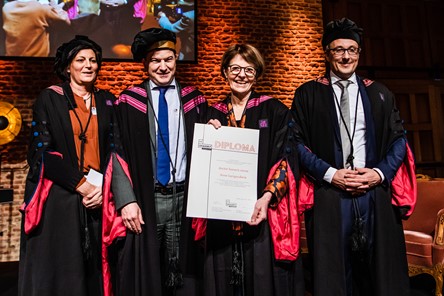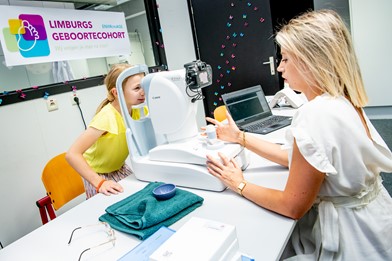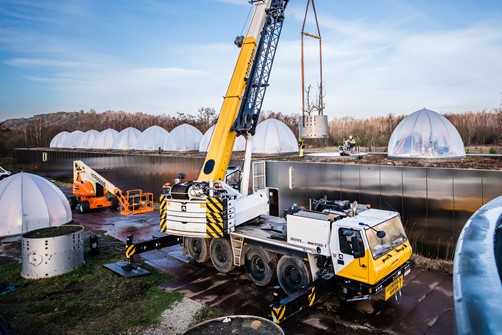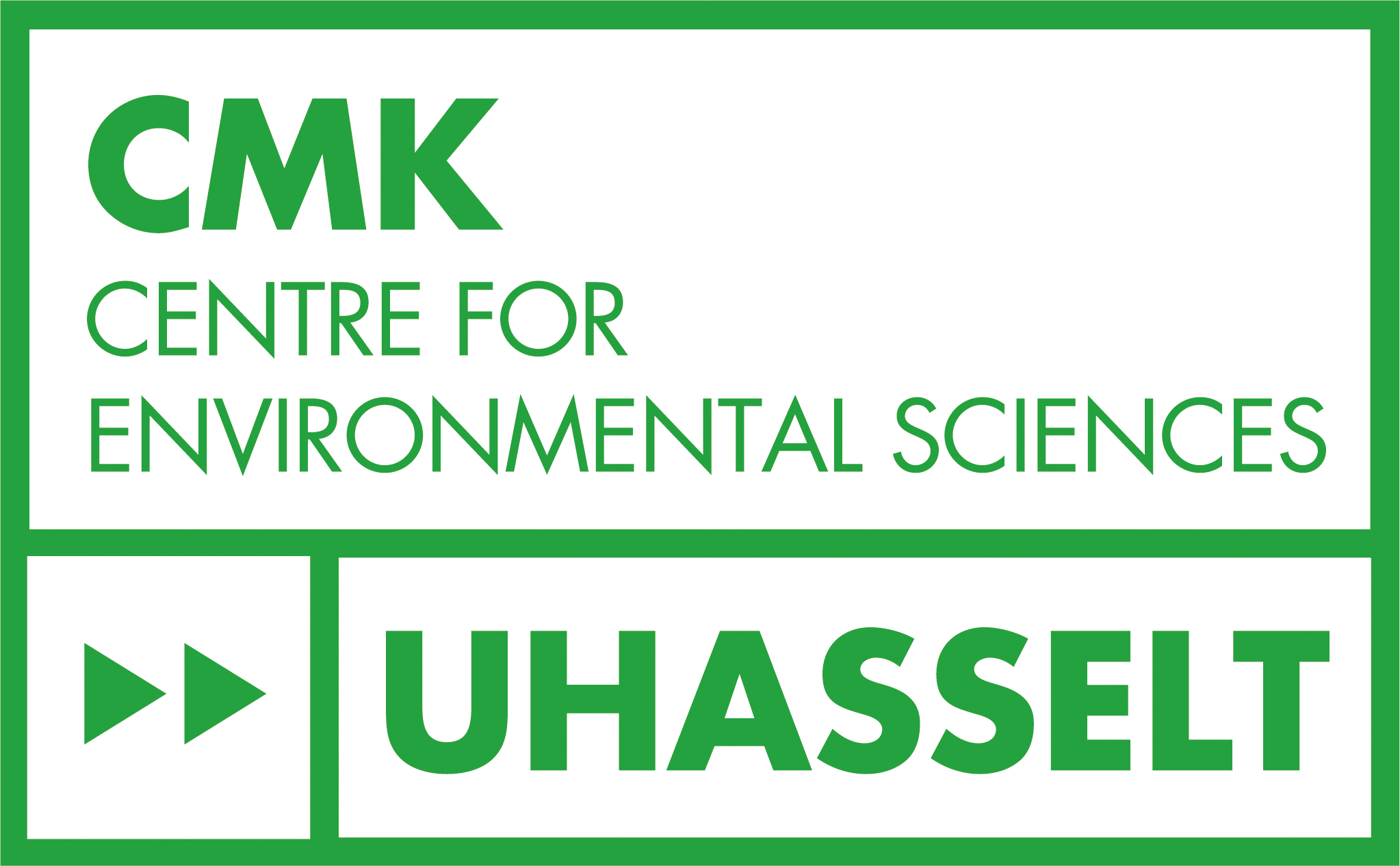Centre for Environmental Sciences celebrates 25th anniversary with honorary doctorate to biodiversity expert Anne Larigauderie


Honorary doctorate of Anne Larigauderie
"The Center for Environmental Science is honored to welcome Anne Larigauderie to our academic community as an honorary doctor," said Prof. dr. Robert Malina, promotor of the honorary doctorate. "Anne Larigauderie's record as head of IPBES is plain impressive. In less than a decade, IPBES has grown into a highly respected international institute consisting of nearly 140 governments of UN member states. With its reports on the state of global biodiversity, IPBES advises policymakers and proposes targeted actions to counter biodiversity loss."

"A lot of CMK projects initiated in these 25 years are related to research on biodiversity and the benefits of nature for humans. As a scientific institute, the CMK contributes strongly to the work of IPBES through the Belgian Biodiversity Platform," said Prof. Dr. Natalie Beenaerts, co-promoter of the honorary doctorate.
"We feel a very strong connection with IPBES and the work of Anne Larigauderie. Like us, she believes in a comprehensive approach of environmental problems, for example, she set up several science policy panels, including those on the integrated approach and treatment of chemicals, waste and pollution. And it was under her leadership that IPBES launched a strong collaboration with the IPCC (Intergovernmental Panel on Climate Change)."
25 years of CMK: 227 researchers, 38 nationalities
"The CMK was founded in 1997 with the objective of providing answers to the many societal challenges that face us in terms of the environment, biodiversity and climate change," says Prof. Dr. Jaco Vangronsveld, who took over the torch from Herman Clijsters in 1999 and led the institute until 2020. He is celebrated today as one of its founders.
From remediating polluted soils with plants through so-called phytoremediation to studying the impact of climate change on ecosystems at Ecotron Hasselt University: over the past 25 years, the Center for Environmental Sciences has built up considerable expertise in numerous research areas. The institute now consists of 227 researchers with 38 different nationalities. The research focuses on nine different scientific disciplines (environmental biology, epidemiology, toxicology, zoology, nature conservation, nuclear technology, circular chemistry, environmental economics and environmental law). "That multidisciplinary nature of the research has always been a very important strength of the CMK," said Jaco Vangronsveld.
Tracking the health of 2.000 children
One of the showpieces of the CMK is the Limburg Birth Cohort. A unique collaboration with Ziekenhuis Oost-Limburg; in which newborn babies have been followed up throughout their childhood since 2010 in order to study the effects of genetic predisposition and the environment on the health of growing children. Meanwhile, more than 2.000 children are already being followed up within the birth cohort, and the number is still growing.

Ecotron Hasselt University
Along with the Limburg Birth Cohort, the Ecotron Hasselt University is one of the showpieces of the Center for Environmental Sciences. In this high-tech research lab, scientists can simulate climate conditions in 12 large climate domes down to the smallest detail. From precipitation, temperature and wind speed to the amount of CO2 in the air. "From the current climate, past climate to the predicted climate in the year 2080. Each of the models we can mimic in minute detail to investigate the impact of climate conditions on our nature," said Prof. Dr. Nadia Soudzilovskaia, head of the Ecotron Hasselt University.

Tools
Social Media
- © 2025 2022 - Hasselt University
- Terms of use
- Privacy statement
- Cookie policy



































































































































































































































































































































































































































































































